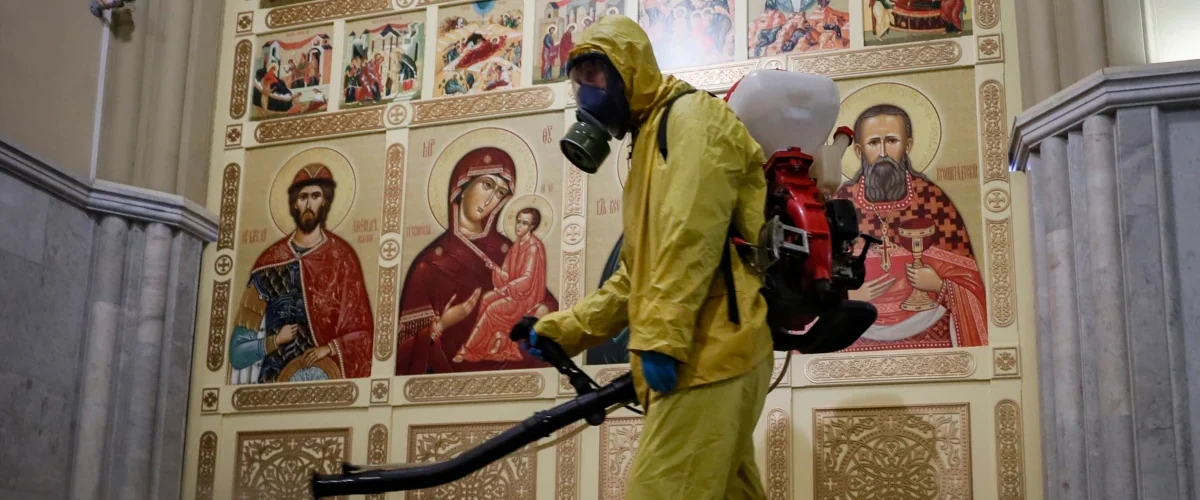Russian President Vladimir Putin has announced a nationwide week of “nonworking” starting on October 30 as the country reels from a surge in coronavirus cases and deaths.
Putin said on October 20 that regions with the most dramatic COVID-19 situation can bring the period forward to start as early as October 23, adding that the plan may also be prolonged depending on the situation.
A government task force on October 20 reported 1,028 COVID-19-related deaths over the previous day, the highest number since the start of the pandemic.
“Right now, it is particularly important to subdue the peak of a new wave of the pandemic,” Putin said in a video call with the cabinet, adding that workers should be paid for the period.
Russia has by far the largest official death toll in Europe — 226,353 — and the fourth-highest in the world after the United States, Brazil, and India.
The country recorded 34,074 new coronavirus cases over the past 24 hours.
Coronavirus cases and mortality numbers have been soaring in Russia for weeks — with the daily death count topping 1,000 for the first time over the weekend — amid low vaccination rates.
Only 35 percent of the country’s nearly 146 million people are fully vaccinated, despite the Russia-developed Sputnik V vaccine being widely available.
Putin said he “can’t understand” the hesitancy given “we have a reliable and efficient vaccine.”
Putin, however, has been criticized often for muddling the message on vaccinations.
Russia was the first country to approve a COVID-19 vaccine, but it took four months after the jab became widely available for the Kremlin to announce that Putin had been vaccinated. Even then, it did not say which shot he took, nor did it provide video evidence to prove it. Only weeks later did Putin finally confirm he had received Sputnik V.
Observers said he also undermined the vaccination message by declining to strongly support vaccine mandates for some Russians, by suggesting without evidence that Western-made vaccines are dangerous and by underplaying the scale of the vaccination problem more broadly.
The Kremlin has been reluctant to impose a new nationwide lockdown like the one introduced early on in the pandemic that sapped the economy and Putin’s popularity, empowering instead regional authorities across the country to decide on local restrictions.
On October 19, Moscow Mayor Sergei Sobyanin said unvaccinated people over 60 will be required to stay home, and mandatory vaccinations will be extended for service workers.
Sobyanin also told businesses to keep at least one-third of their staff working remotely.
Those measures take effect next week.


















